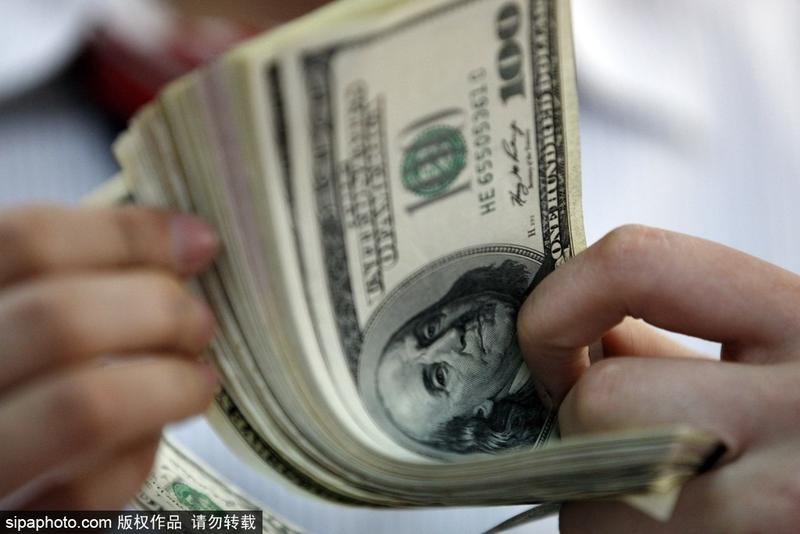 A teller counts dollar notes at a bank in Huaibei, Anhui province. (PHOTO/SIPA)
A teller counts dollar notes at a bank in Huaibei, Anhui province. (PHOTO/SIPA)
China attracted long-term investment capital from overseas in the first quarter and recorded a net inflow, given the relatively stable exchange rate of renminbi and a basic equilibrium in the foreign exchange market, according to the State Administration of Foreign Exchange, the nation's foreign exchange regulator, on Friday.
READ MORE: China's economy eyes rebound after Q1 virus pains
In March, the surplus of banks' foreign exchange settlement stood at US$18.6 billion, up from US$14.2 billion in February, data from the State Administration of Foreign Exchange showed
The fast-spreading novel coronavirus never disrupted overseas investment in China's capital market. During the period from January to March, foreign investors increased their holdings of onshore bonds by 48 percent from a year earlier, and market sentiment is turning optimistic, said Wang Chunying, a spokesperson of the SAFE.
In the first quarter, banks settled US$491.5 billion and sold US$452.5 billion in foreign exchange, representing a surplus of US$39.1 billion, compared with a deficit of US$56 billion in 2019 according to the SAFE data.
In March, the surplus of banks' foreign exchange settlement stood at US$18.6 billion, up from US$14.2 billion in February, official data showed.
As the renminbi exchange rate formation mechanism was improving, exchange rate elasticity was strengthened and played a significant role in allocating foreign exchange resources. The foreign exchange market is expected to remain stable this year, despite external headwinds, the SAFE official added.
ALSO READ: China to further deepen reform, opening up in forex sector
China's current account has been influenced by the coronavirus pandemic, weakened external demand and declining trade surplus of goods. "But in the first quarter, the current account is likely to maintain stable within a reasonable range, and the COVID-19 pandemic may not change the basic trend in a medium to long term," Wang said.


